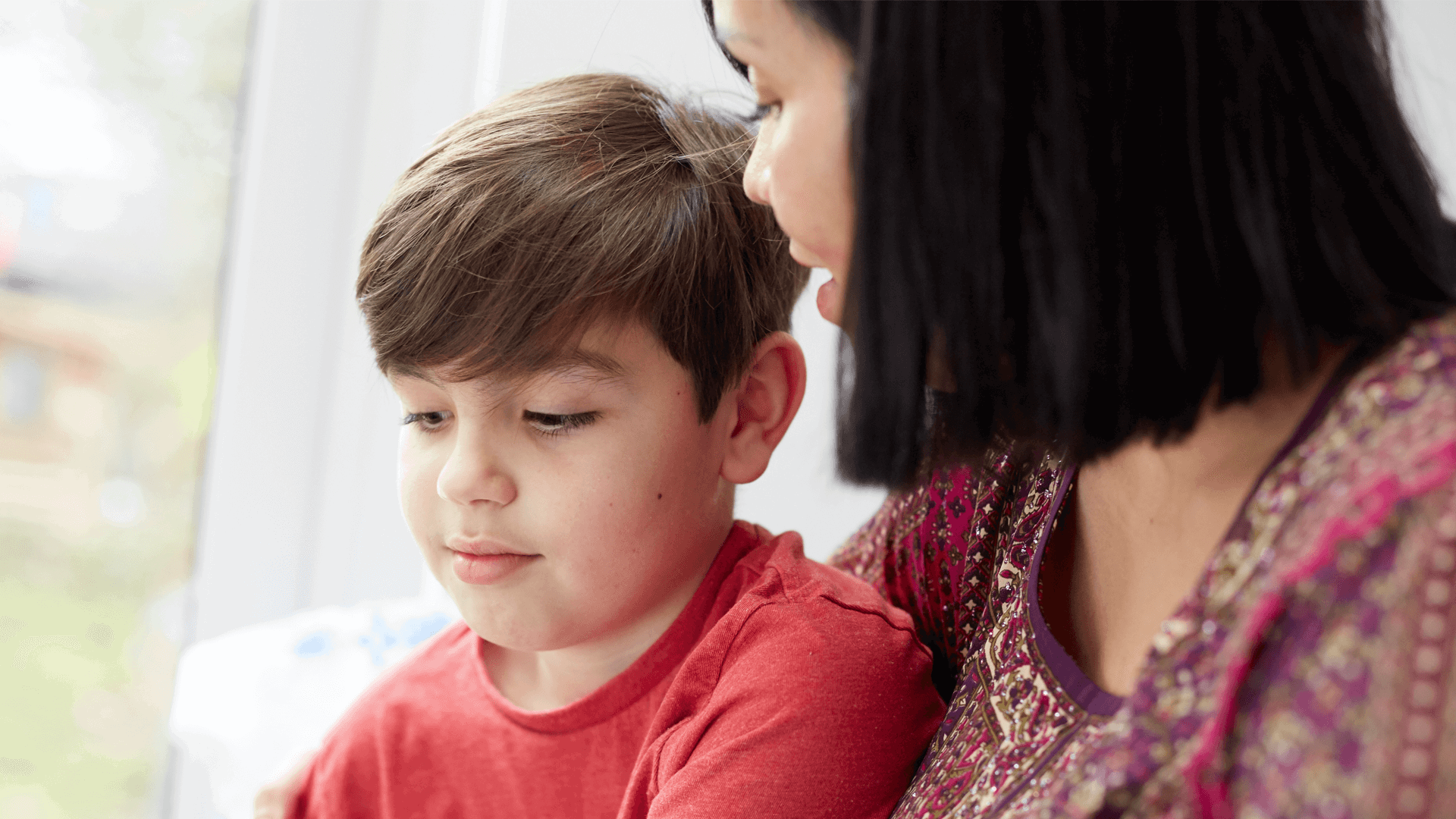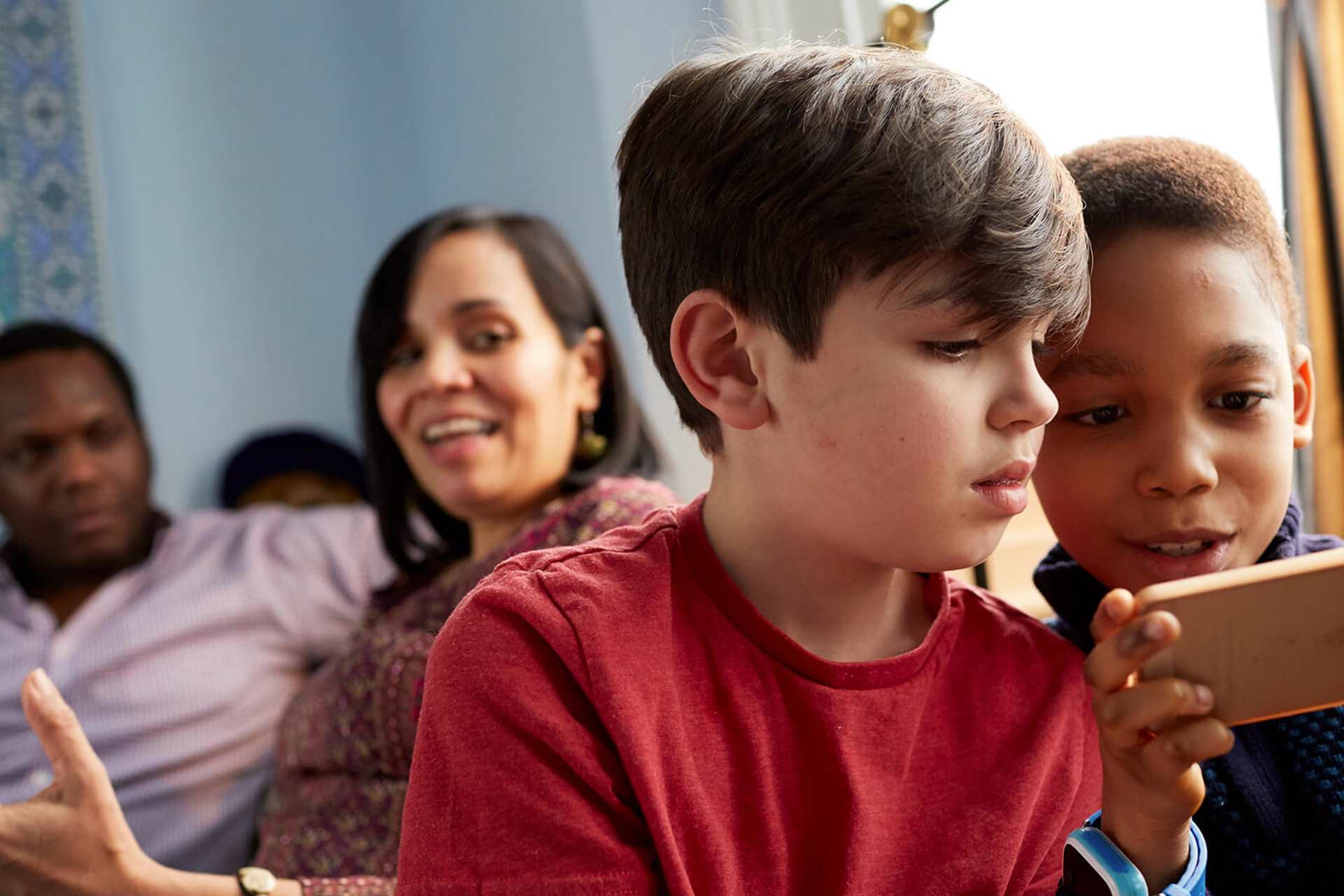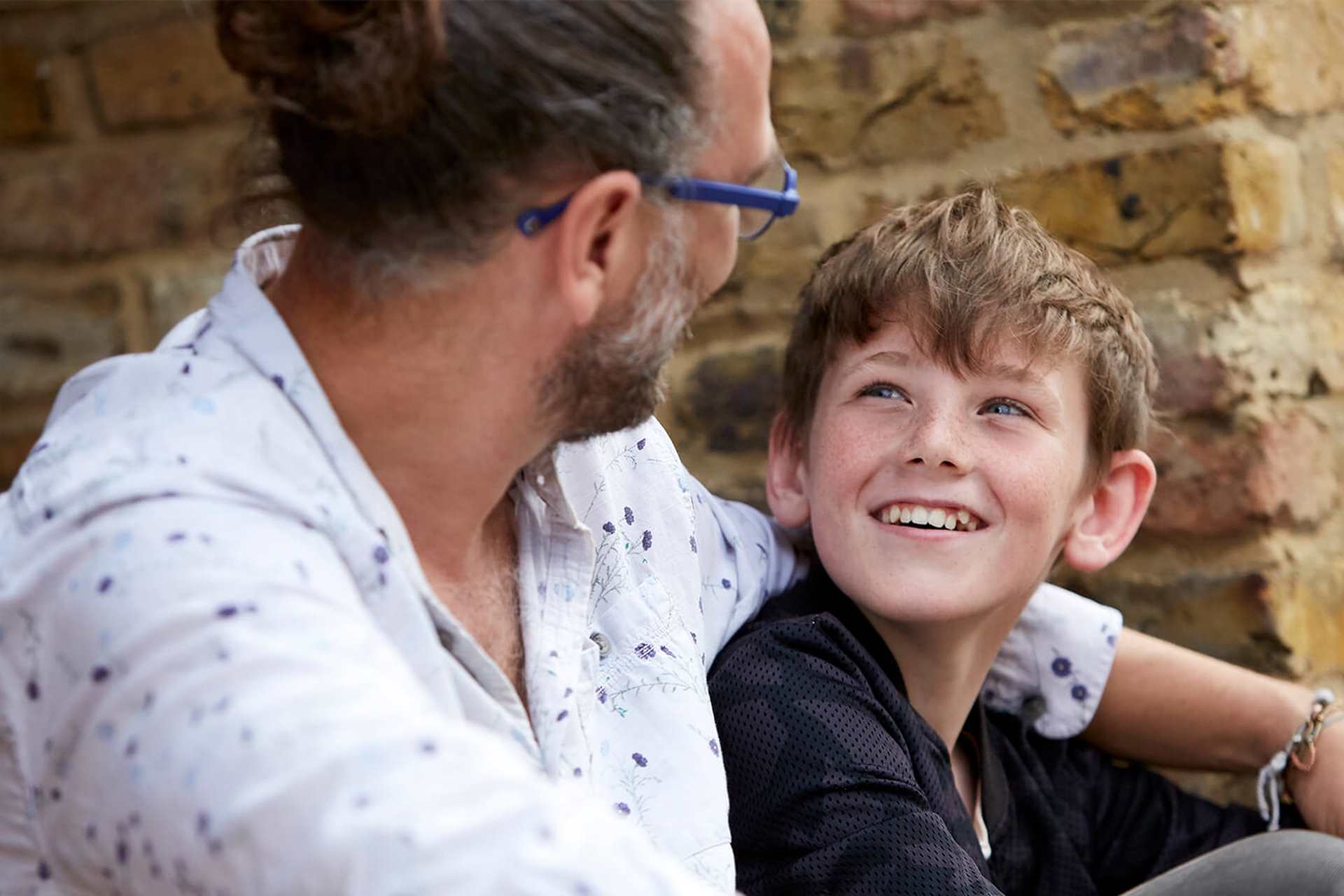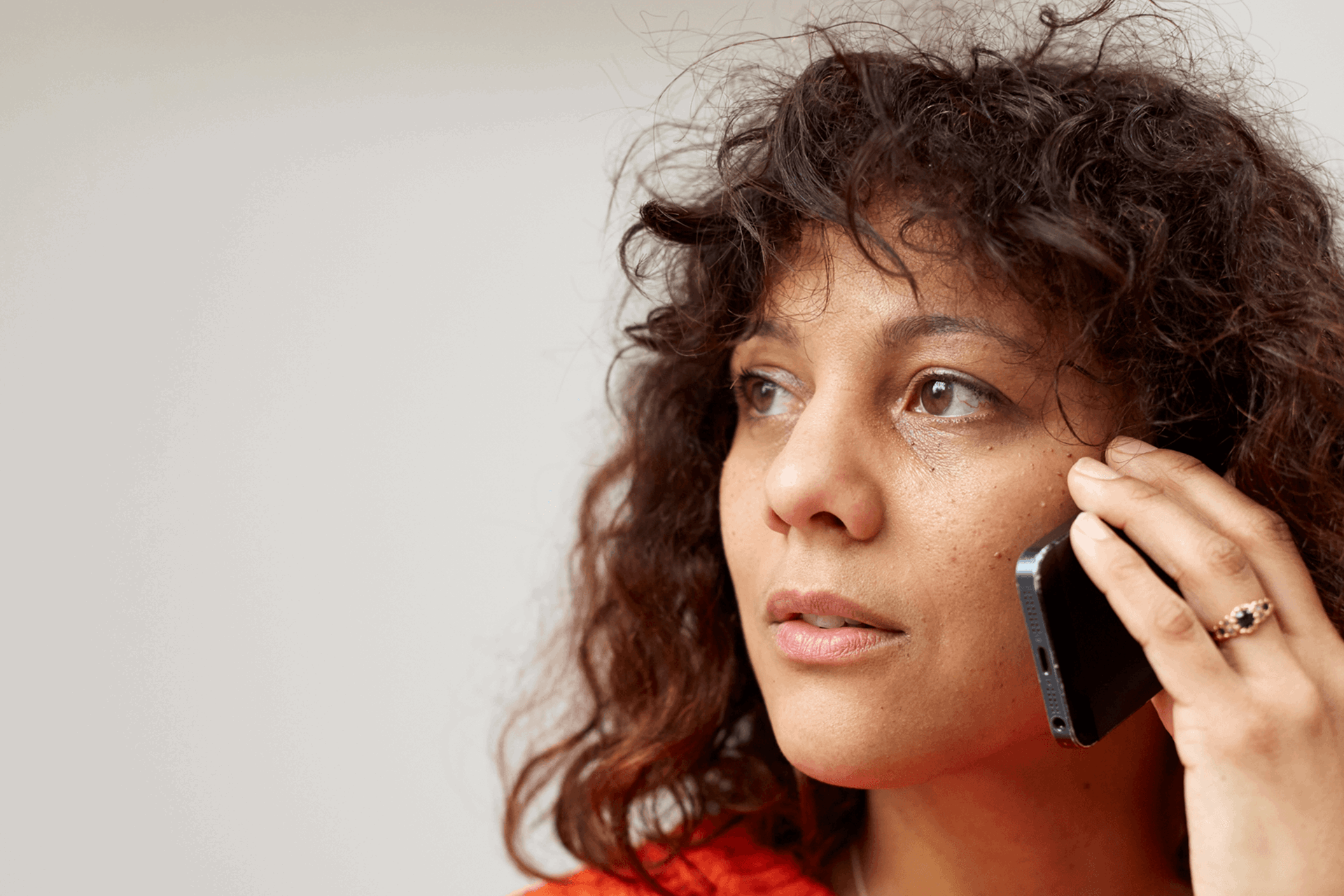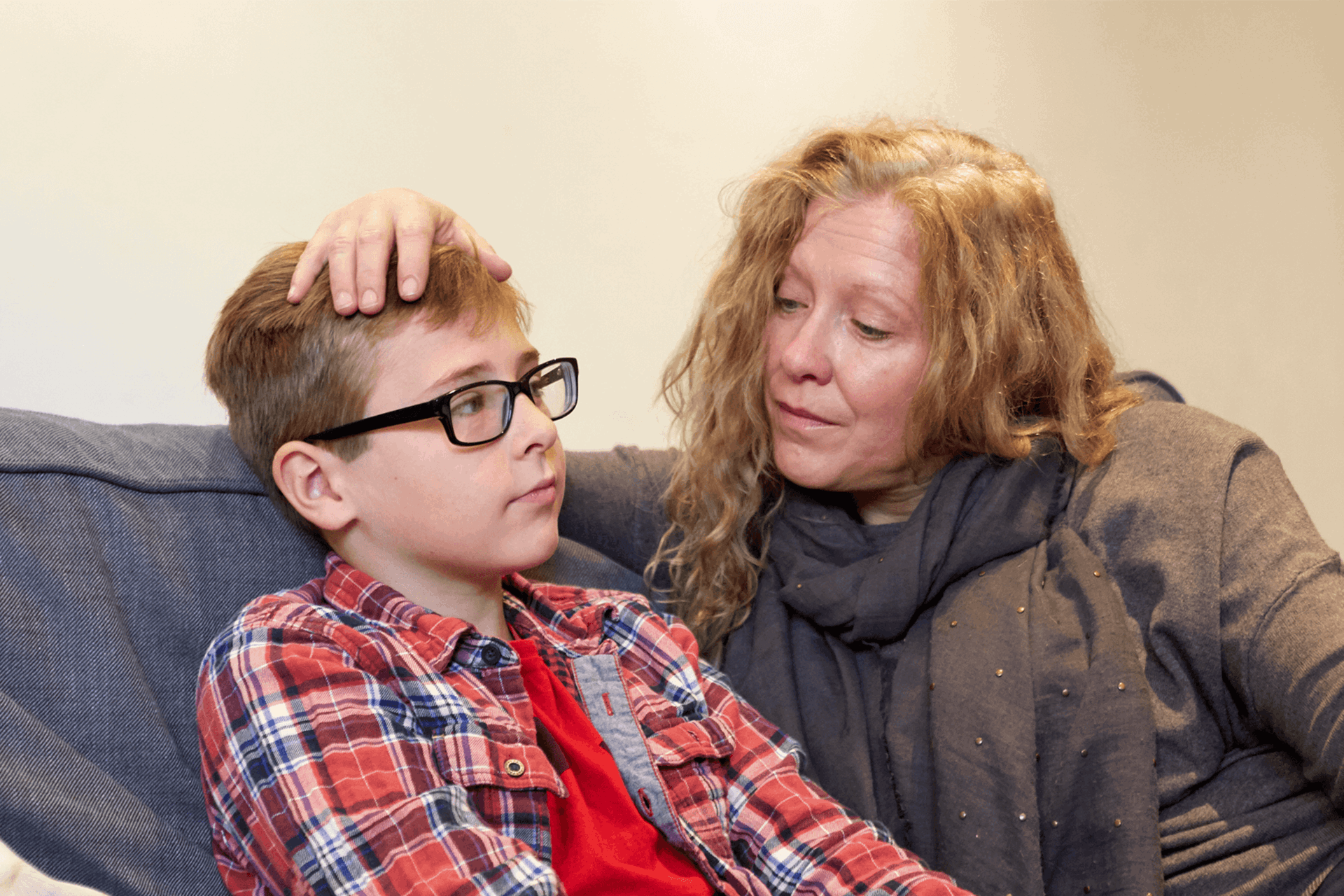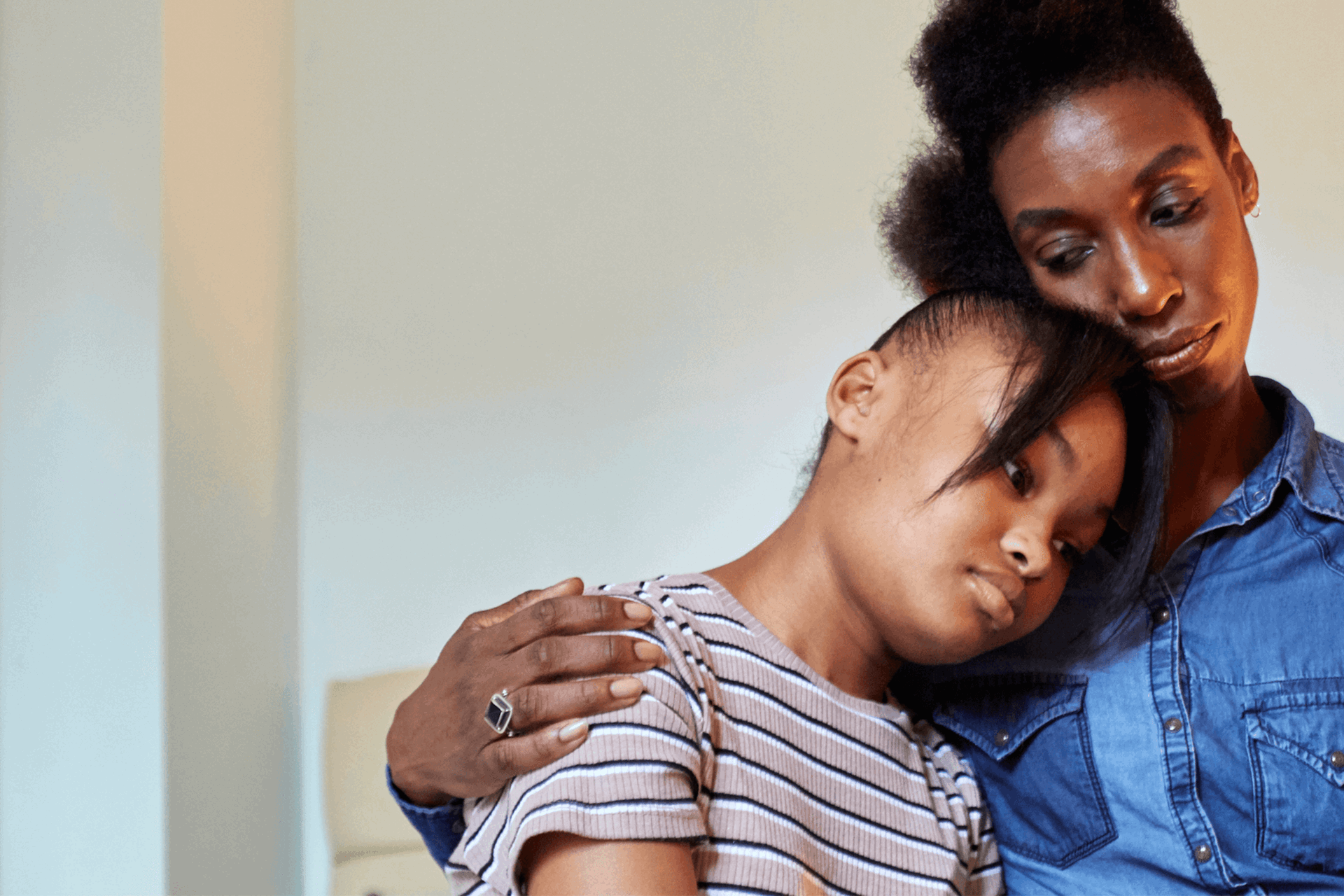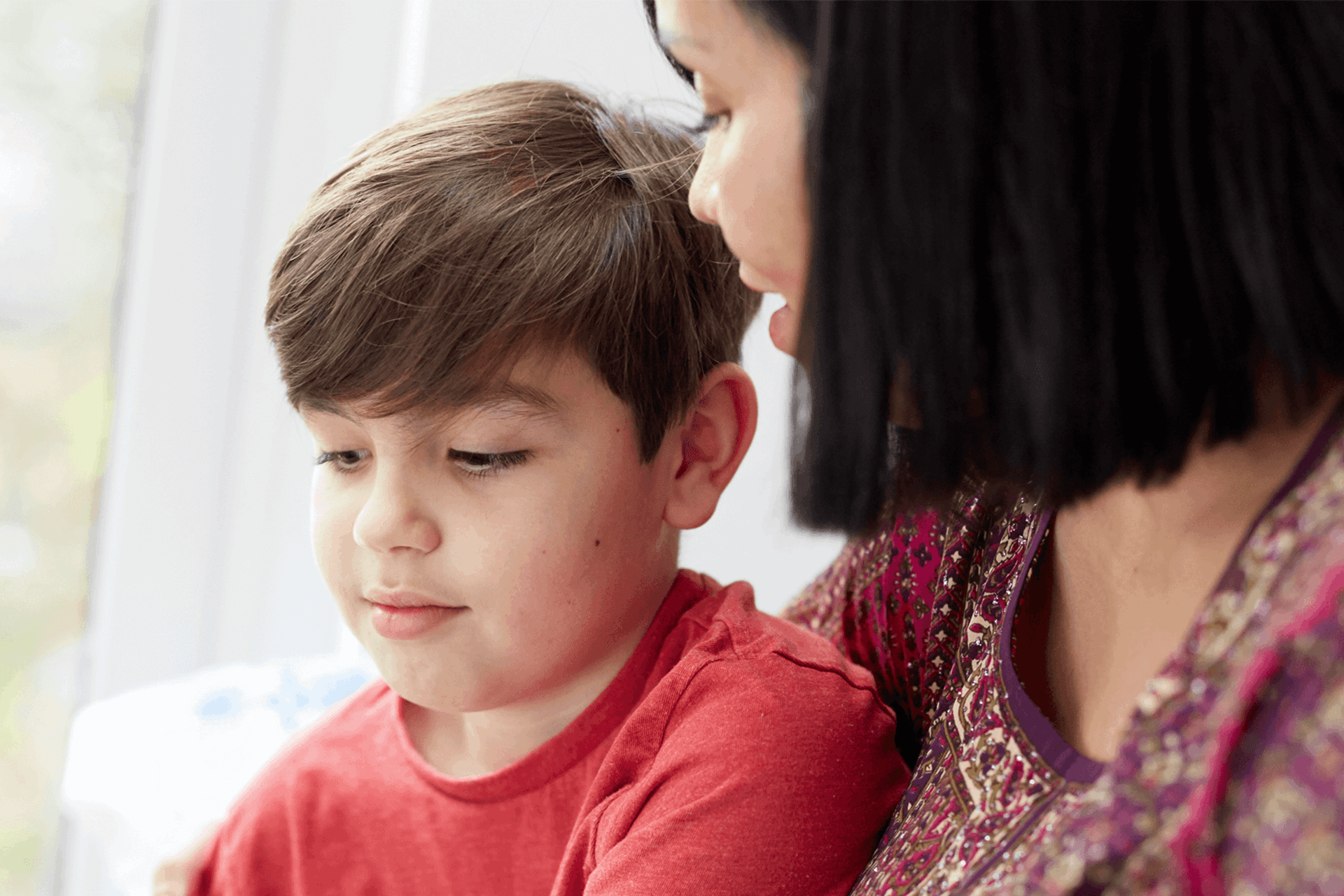Topics mentioned: Coronavirus and mental health, social media, how to talk to your child about mental health
Your child may understandably be concerned or worried by what they see, read or hear in the news or online regarding Covid-19. As a parent or carer, it’s good to talk to them honestly but calmly about what is happening, and to not ignore or shield them from what is going on in the world. Children look to adults in their life for comfort when they are distressed, and will take a lead on how to view things from you. Remember, you don’t have to have all the answers, but it is better to have a gentle conversation to reassure your child that they can talk to you so they don’t feel like they’re on their own.
You may need to gauge their level of understanding or interest to decide what level of detail you need to go into when explaining what is going on. It’s important to respond to their questions and concerns, so that anxieties don’t build up. You could start by asking them what they think is going on, if their friends are talking about it and what they are saying, and if they have any questions.
You could start by asking them what they think is going on, if their friends are talking about it and what they are saying, and if they have any questions.
Older children may have already read or seen a lot of information about coronavirus on social media or online. If they are feeling overwhelmed by what they are reading, encourage them to acknowledge what they are finding difficult. You could help them limit the amount of times they check the news, and encourage them to get information from reputable websites. The Government website is the most up-to-date and reliable source of information, and the NHS common questions has useful information if they are worried about symptoms or family members.
Starting a conversation can be difficult, especially if you’re worried that your child is having a hard time. You’re the leading expert when it comes to your child. You can tell when they aren’t in the mood to talk, or when they aren’t responding to your attempts. Above all, it’s important to remember that as a parent, you do not need to know all the answers, but you can help to contain their fears and anxieties by being there for them.
It’s important to remember that as a parent, you do not need to know all the answers, but you can help to contain their fears and anxieties by being there for them.
Ten tips from our Parents Helpline
- Try not to shield your child from the news, which is going to be nearly impossible at the moment. The amount of information on the internet about coronavirus can be overwhelming, so ask your child about what they’re seeing or hearing online and think together about reliable sources of information.
- Talk to your child about what’s going on. Find out how they’re feeling and what they’re thinking about, let them know it is okay to feel scared or unsure, and reassure them that this will pass.
- Try to answer their questions and reassure them in an age appropriate manner. Remember, you do not need to know all the answers, but talking can help them feel calm.
- Reassure your child that it is unlikely they will get seriously ill, and if they do you feel ill you will look after them. Your child might be concerned about who will look after you if you catch the virus. Let them know the kind of support you have as an adult so that they don’t feel they need to worry about you.
- Give some practical tips to your child about how they can look after themselves. For example, show them how to wash their hands properly, and remind them when they should be doing it.
- Keep as many regular routines as possible, so that your child feels safe and that things are stable.
- Spend time doing a positive activity with your child (such as reading, playing, painting or cooking) to help reassure them and reduce their anxiety. This is also a great way of providing a space for them to talk through their concerns, without having a ‘big chat’.
- Encourage your child to think about the things they can do to make them feel safer and less worried.
- Be aware that your child may want more close contact with you at this time and feel anxious about separation. Try to provide this support whenever possible.
- Remember to look after yourself too. If you yourself are feeling worried, or anxious about coronavirus, talk to someone you trust who can listen and support you.
More information and advice
Where to get help
-
Youth Access
Provides information about local counselling and advice services for young people aged 11-25.
Put in your location and what you need help with into their 'Find help' search, and see what services are available in your area.
-
Anxiety UK
Provides information, support and advice for anyone struggling with anxiety. Please note that this organisation offers paid-for services, including therapy and an advice line.
- Opening times:
- 10.30am-4.30pm, Monday-Friday
-
Family Line
Provides information and support around family issues, as well as longer-term help through Befrienders and Counsellors.
- Opening times:
- 9am - 9pm, Monday - Friday
Spread the word
